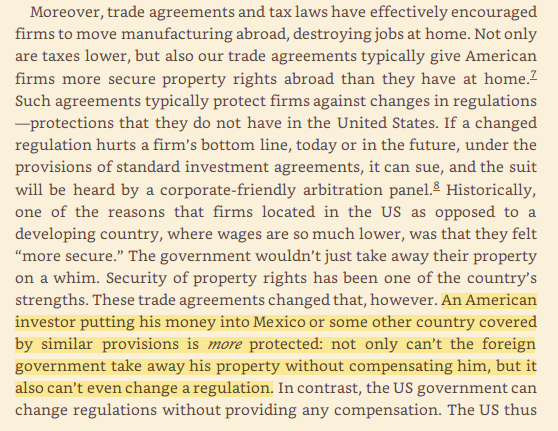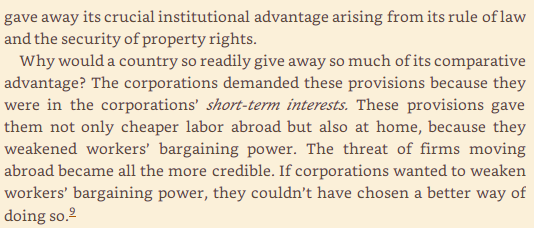In 1972, I went to Leningrad. This was the age of Brezhnev—scary, dark, humorless USSR. Just getting off the boat was about all I could muster. To make matters worse, the Israeli Olympic team was taken hostage the morning we were scheduled to go on our very first Intourist guided tour. I spent the morning going from fretful to scared shitless. Once the bus got underway, I began to notice things I thoroughly disapproved of. The trucks were ugly and belched thick black smoke. Consumer goods were an insult to the
Instinct of Workmanship. Construction sites were a disaster. But beneath the seediness of 70s Leningrad was an undeniable reality—this was the Imperial Capital of Peter the Great. This is one of the most beautiful cities on earth—a city where over one million died of starvation during the Siege rather than surrender it to the Nazis.
It took most of the day, but I came to the conclusion that if they had better political and economic systems, this would easily be the richest country on earth. Considering USSR had to be built twice (Stalin's industrialization and then post WW II reconstruction) they weren't doing so badly even in 1972. Then came the Harvard boys to teach the Russians neoliberal "capitalism." Caused nearly as much damage as the Nazis.
Here's the mess the son of Leningrad / St. Petersburg Vladimir Putin inherited from Yeltsin in 1999:
▪ The country was deeply in debt to the scum like IMF and World Bank?
▪ The Harvard boys had created such an economic catastrophe that life expectancy was falling, whole industries lay in ruins, the former Russian middle class was reduced to selling heirlooms in the winter cold, their savings had been wiped out, the best and brightest had emigrated. (For what Jeffrey Sachs inflicted on Russia makes him a walking advertisement for bringing back crucifixions.)
▪ The oligarchs who had seized the best Russia had to steal escaped with their loot—mostly to London where they triggered a bubble the real estate speculators love so much.
Add to this list of great headaches, he has had to deal with: NATO encirclement, international slander, the Banderite-fascist coup in Ukraine. Of course he had to move on Crimea. The Red Army lost around a half-million folks trying to defend and then retake Sevastopol during WW II. Crimea is REALLY important for Russia and so he had to remake economic and foreign policy to deal with the fallout of keeping Crimea Russian.
In the meantime, Russian aerospace is back on its feet. The military fights with pride and professionalism. The things Russia has been good at, they are good at again—figure skating, ballet, etc. Putin is still wildly popular. He has rebuilt relationships with China. He has opened elite schools so Russian education is again world-class. Russia became the world's leading exporter of grains last year—all GMO-free.
The list is nearly endless. And why not. He has at least 40 IQ points on any politician we have in USA and was given one of those elite educations that the commies could do so well. He is so fluent in German he holds press conferences in Germany in German. He holds 3 hour press conferences for the international media without notes. He has done something that anyone examining the wreckage of 1999 would not have predicted—he has restored pride in a people who not long ago were just drinking themselves to death.
What I find so amazing is his willingness to brush off some of the most ridiculous slanders and provocations. I was raised around pacifists so am pretty conversant with the dilemmas and contradictions of this practice. I would give Putin a solid B+. Turns out it is pretty easy to be a pacifist when armed with nukes ;-) Or maybe it really is the Orthodox church. I don't know much about those folk beyond the fact they have incredibly ornate churches and their male glee clubs have amazing basses. Reportedly Putin's mother was very devout and baptized him as a baby. Whatever. It's just that under Putin, most of the damage those barbaric Bolsheviks inflicted on this element of Russian culture has been repaired or rebuilt—reportedly over 40,000 churches have been rehabbed since the end of Bolshevism.
I have not been thrilled by the mindless Russia-bashing we have had to endure these last 2.5 years. Most of it unbelievable lies. And while I detest the liars who have reintroduced the unholy practice of red-baiting, I am even more distressed by the endless stream of self-identified "progressives" who bought into the Russiagate hoax.
Robert LaFollette was a real Progressive—was the party's presidential candidate in 1924. He tried to keep USA out of the insanity of WW I thereby ruining his career as a Senator. So no, anyone who was cheerleading a restart of the Cold War and McCarthyism is most certainly NOT a progressive.





